Recalling the words of General Secretary To Lam: "The new era also places new and higher demands on revolutionary journalism, requiring journalism to develop accordingly, to grow alongside the nation, and to be on par with a professional, humane, and modern press," Minister of Culture , Sports and Tourism Nguyen Van Hung shared his vision and solutions for the strong development of Vietnamese journalism in the digital age.
A pioneering pen throughout all stages of history.
- Vietnamese journalism has gone through a 100-year journey. So, how does the Minister assess the role, position, and outstanding contributions of the country's press in the cause of national construction and defense?
Minister Nguyen Van Hung: First of all, it must be affirmed that throughout the past century, the Party and the State have always paid special attention to the field of journalism. At the national scientific conference "100 Years of Vietnamese Revolutionary Journalism Accompanying the Glorious Cause of the Party and the Nation," leaders of the Party and the State, veteran journalists, scientists, etc., highly appreciated the great contributions of the country's revolutionary journalism to the cause of building and defending the Fatherland, and developing the country.
From its very beginnings, under the leadership of leader Nguyen Ai Quoc, newspapers such as Thanh Nien, Tranh Dau, Doc Lap, Cuu Quoc ... carried out many propaganda and educational activities and directly organized revolutionary movements, making a very important contribution to spreading Marxism-Leninism in Vietnam, laying the foundation for building the ideological, political , theoretical and revolutionary action basis of the entire Party, the entire people and the entire army.
During the period of reform, the press has always been a pioneering force, guiding and paving the way for innovations and breakthroughs in institutional reform, unlocking resources, and contributing to the building of a socialist rule of law state of the people, by the people, and for the people. Beyond being the political and ideological voice of the Party, the press has gradually become an important part of the cultural industries, developing in an increasingly healthy, professional, humane, and modern way.
Throughout the glorious 100-year journey of Vietnamese revolutionary journalism, we cannot forget the sacrifices of journalists who fell for the independence and freedom of the nation. We cherish and are grateful for their contributions as an unforgettable part of the history of our country's journalism.
- In your role as the state manager of the press, could the Minister provide a general assessment of the achievements of state management of the press in the past period and the challenges and difficulties that the press is currently facing?
Minister Nguyen Van Hung: First of all, it must be affirmed that since the Law on the Press was enacted by the National Assembly in 2016, it has created a significant turning point in institutionalizing the freedom of the press alongside state management. New contents such as the rights and obligations of press agencies and journalists; mechanisms for licensing, revocation, specialized inspection, press planning, etc., have been clearly defined, creating a solid legal foundation for managing and developing the press. Since then, the Government and ministries have issued more than 31 legal documents guiding and regulating press activities, ensuring the maintenance of political orientation, mobilizing resources, and improving the quality of journalistic products.
In its development, journalism today faces enormous challenges, especially in the context of digital transformation and global integration. The explosion of cyberspace and digital media makes controlling and directing information more complex. Fake news, distorted information, and incitement spread rapidly, while mainstream journalism loses market share and its leading position…
The skills and professional ethics of some journalists have not kept pace with the development of digital technology and societal standards, thus raising serious demands for ethical standards and social responsibility among journalists. The lack of authentication mechanisms and digital labels for mainstream journalism makes it easy for the public to confuse legitimate sources with fake news, undermining the guiding role of revolutionary journalism. These issues need to be comprehensively and thoroughly examined and evaluated so that we can find new directions for the development of the country's journalism.
Three pillars of modern journalism development: Institutions - Infrastructure - Human resources
- One of the biggest challenges that the Minister just emphasized is the unprecedented development in human history of digital technology, digital traditions, and artificial intelligence (AI), which will have a huge impact on journalism, but also open up enormous opportunities and potential ahead. Could the Minister elaborate on this assessment?
Minister Nguyen Van Hung: The digital era presents both significant challenges and opens up many new opportunities for Vietnamese journalism. Regarding challenges, first and foremost is the shift of readers from traditional media to digital platforms. This requires a change in journalistic thinking, moving from traditional production processes to digitized, multimedia processes. Journalists today not only write for print newspapers but also produce online news, videos, livestreams, podcasts, etc., to attract readers, especially the younger generation.
On the positive side, digital technology also offers tremendous opportunities. Journalists can leverage digital technology to create multimedia news, infographics, and high-definition video reports; readers can even interact directly, providing information or data to reporters. This is a driving force for expanding opportunities for interaction, multi-dimensional storytelling, and increasing the sense of community in journalism. Furthermore, the development of artificial intelligence and big data is opening up great potential for journalism: from automating editorial processes and personalizing content for readers to the ability to analyze public opinion trends.
The Ministry of Culture, Sports and Tourism also encourages media agencies to invest in researching and applying modern technologies (for example, AI for news aggregation, chatbot interaction, and virtual reality for online newspapers). If properly utilized, technology will help journalism achieve breakthroughs in both form and content without losing its identity.
It can be affirmed that in the new era of the country, the press holds a particularly important mission – that of a “channel of knowledge – connecting trust” between the Party, the State, and the people. The press not only transmits information but also contributes to shaping thinking, guiding awareness, building social consensus, and creating a combined strength to successfully accomplish the tasks in the cause of national renewal and development. Faced with the aforementioned challenges, first and foremost, we need to raise awareness and transform our thinking to adapt to the new situation.
Looking back at the country's development over the past period, since the 11th National Congress, the Party has identified three breakthroughs in the socio-economic development strategy for the period 2011-2020: perfecting institutions, developing human resources, and building a synchronous infrastructure system. Applied to the field of journalism, these three strategic breakthroughs remain valuable and can be considered a guiding principle and a solution to help the revolutionary Vietnamese press develop.
In the draft documents for the 14th Party Congress, these three pillars continue to be mentioned and quantified more thoroughly in the context of our country preparing to enter an era of growth, development, and prosperity.
In this context, continuing to affirm the role of the press as a solid bridge between the Party, the State, and the people, as a flow of knowledge nurturing the national spirit, is an urgent requirement and also a constant reminder of the sacred mission of those who wield the pen today.
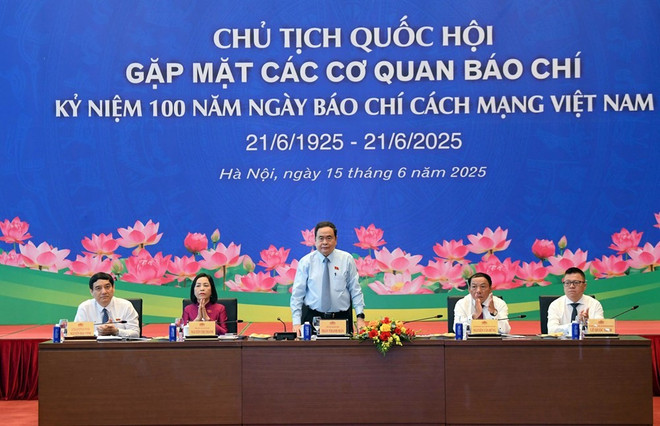
Keeping the passion for traditional crafts alive contributes to the sustainable flow of Vietnamese identity.
- The Minister just mentioned three breakthroughs for the development of revolutionary Vietnamese journalism in the new era. Could the Minister share more details about these solutions?
Minister Nguyen Van Hung: Vietnamese revolutionary journalism is entering a special stage of development, where opportunities go hand in hand with challenges. After nearly 40 years of reform, the country's foundation, potential, position, and international prestige have been enhanced. The revolution to streamline the organizational structure and political system for greater efficiency and effectiveness; the development of science and technology, innovation, and digital transformation; the acceleration of international integration; and the development of the private economy are key levers creating new opportunities for the strong development of the country in general, including the field of media and journalism. This requires us to make breakthroughs in thinking, act decisively, especially to comprehensively reform the management and governance methods of modern journalism, linked to digital communication and data connectivity.
To achieve that, the first issue is the institutional framework. The institutions must be truly synchronized, without gaps, ensuring both effective state management and creating a conducive environment for journalistic development. The upcoming revision of the Press Law will focus on the following major directions:
The law should fully institutionalize the Party's leadership role over the press; guarantee the freedom of speech and freedom of the press for citizens as stipulated in the 2013 Constitution. The amended law must clarify the boundaries between freedom of the press and social responsibility and civic duty, ensuring transparency without loosening management.
完善 regulations related to journalistic activities in cyberspace.
Strengthening management of journalistic activities; the amended law aims to build an effective monitoring and inspection mechanism to prevent "media disguised as journalism" or "journalism-ized corporate communication"; promoting focused post-auditing, inspection based on quality criteria instead of controlling form.
Improving the quality of journalists and media leaders aims to build a team with strong professional skills and ethical conduct.
Promoting the economic development of journalism creates a favorable legal framework, allowing the press to generate legitimate revenue and ensure sustainable development.
Secondly, I believe we need a more strategic and groundbreaking approach in building the infrastructure for Vietnam's revolutionary press, focusing on expanding the digital infrastructure space to be both integrated and dual-use.
Clearly, dual-purpose workspaces contribute to the accumulation of an immeasurable wealth of knowledge and culture for the country and humanity. Journalistic workspaces are no longer just "places to write," but must become integrated newsrooms – where data, images, sound, text, and artificial intelligence merge into accurate, engaging, and reliable streams of information.
It operates using a synchronized digital infrastructure, connecting big data, integrating AI technology, and optimizing processes from production to publishing content across multiple platforms.
Modern journalistic infrastructure must also integrate the mindset of a "dual-use space," serving as both a professional center and a multimedia knowledge hub.
This is a strategic issue. In the coming period, the Ministry will continue to advise the Party and the State on appropriate mechanisms for developing digital journalism, especially in the spirit of Resolution 57 of the Politburo on breakthroughs in science, technology, innovation, and national digital transformation.
But first and foremost, change must begin from within each media organization – from the mindset of the editorial leadership to the implementation capabilities of each individual journalist.
We need to proactively strengthen domestic and international connections, mobilize social resources, especially from the private sector – which is identified as a crucial driving force of the economy according to Resolution 68 of the Politburo – to invest in journalism not only financially but also in technology, ideas, and high-quality human resources.
We hope that in the upcoming master planning process of ministries, sectors, and localities, the infrastructure of the press will no longer be seen as merely a "workplace" in the narrow sense, but as a place for nurturing knowledge and disseminating culture. This content needs to be clearly quantified in the resolutions of Party congresses at all levels, so that future newsrooms truly become centers for connecting and guiding public opinion. This infrastructure must be capable of interconnecting press agencies, synchronized with the national database, linked to regional digital centers, contributing to improved forecasting capabilities, policy communication, and building trust among the people.
Alongside infrastructure and institutions, the human element – the team of journalists – remains central to all development strategies. Journalists in the new era must not only be professionally competent but also capable of mastering technology, adapting quickly to the digital environment, possessing a global mindset, multidisciplinary knowledge, and always maintaining the flame of service.
Therefore, investing in training high-quality journalistic personnel is an investment in the nation's future; it is necessary to innovate training programs and cultivate journalists in a way that increases practical skills, critical thinking, political awareness, and cultural depth, especially in terms of conduct. President Ho Chi Minh instructed: "Revolutionary journalists must be close to the people, understand the people, learn from the people, speak the language of the people, and write to serve the people."
Uncle Ho's advice remains highly relevant as the press faces challenges amidst a chaotic, polarized flow of information, with numerous deviations from norms and commercialization.
In short, if we want the press to effectively fulfill its mission of "leading the way, participating in implementation, and summarizing afterwards," then we must act together from institutions and human resources to infrastructure. These are three inseparable pillars, intertwined and mutually supportive, working towards the strategic goal of establishing a highly governed national press ecosystem that ensures the principle of "unity in diversity," protecting the political ideology, historical traditions, and national culture, while creating room for creativity, innovation, humanism, and modernity. And in the near future, I expect each newsroom to truly be a conduit connecting knowledge and the trust of readers, where information is not only shared but also elevated to the level of knowledge, inspiration, and life values.
- On the occasion of the 100th anniversary of Vietnam's Revolutionary Press Day, what message would the Minister like to convey to the journalistic community in general, and to journalists working in the fields of culture, sports, and tourism in particular?
Minister Nguyen Van Hung: On the occasion of the 100th anniversary of the Vietnamese Revolutionary Press Day - a particularly important milestone in a journey of accompanying the nation - I would like to send my best wishes to all journalists nationwide.
I particularly appreciate the writers who are quietly dedicating themselves to cultural, sporting, and tourism life – where each story not only reflects reality but also cherishes the national spirit, illuminating the intellect and character of each Vietnamese person.
Journalists working in the fields of culture, sports, and tourism are not just reporting news, nor are they simply embarking on a journey to discover beauty and awaken cultural sources; they are also quietly touching upon intangible yet immutable values.
Every step, every stop for the journalist will be filled with beautiful stories, memoirs, discoveries, reflections, policy critiques, and perhaps even a melody of the homeland, a heritage site, a festival, or the cheers of a sporting event, the emotional gaze of tourists enjoying cultural spaces, folk art, and authentic Vietnamese cuisine… subtle glimpses that contribute to cherishing and preserving the national cultural identity.
Each of us journalists is a "cultural ambassador, tourism ambassador, sports ambassador," possessing the qualities of a soldier on the ideological and cultural front, contributing to bringing Vietnamese culture, land, and people closer and deeper to friends around the world.
I hope that journalists in general, and especially those writing about culture, family, sports, tourism, journalism, and publishing, will continue to preserve the "golden quality" of empathy and unwavering dedication.
Write with hearts moved by beauty, with eyes that see deeply into identity, and with the pioneering spirit of revolutionary journalism. You, who ignite the flame and sow seeds of faith amidst the vibrant currents of life, will contribute to illuminating the portrait of a modern Vietnam that remains rich in cultural identity, striving daily towards prosperity, strength, civilization, and happiness.
- Thank you very much, Minister.
Source: https://www.vietnamplus.vn/bao-chi-cach-vang-viet-nam-mach-nguon-tri-thuc-ket-noi-niem-tin-post1045281.vnp








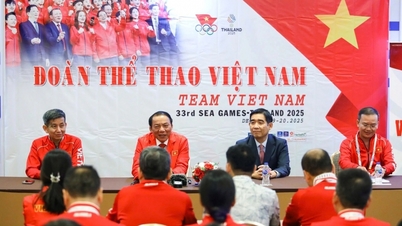

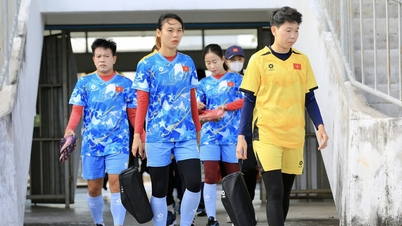

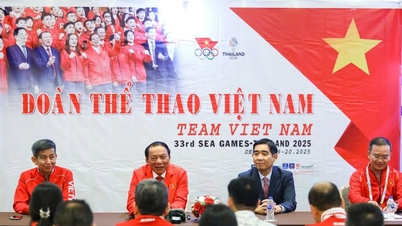

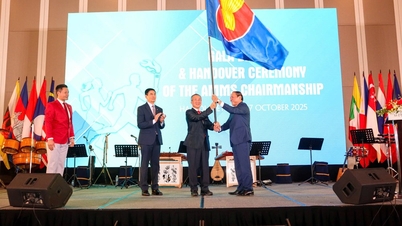

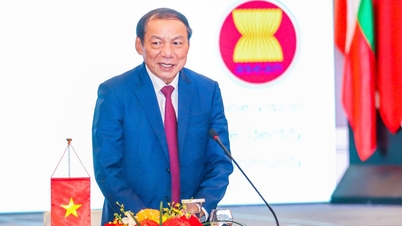
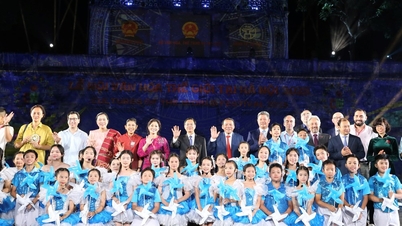
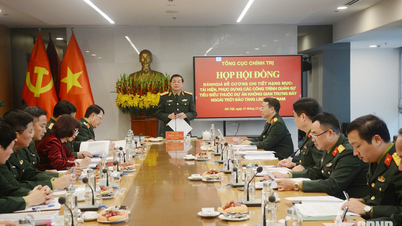

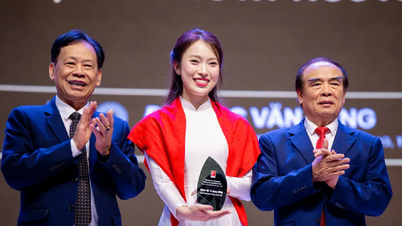

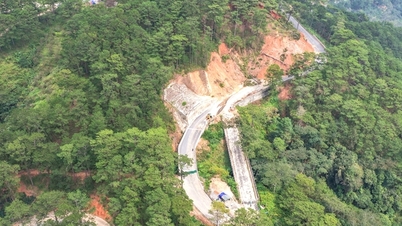

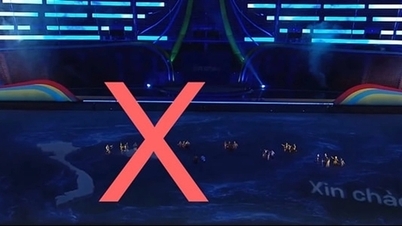

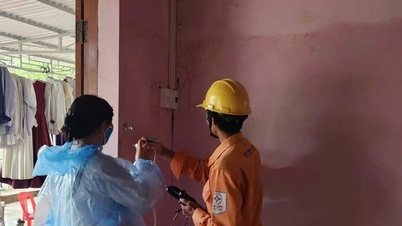
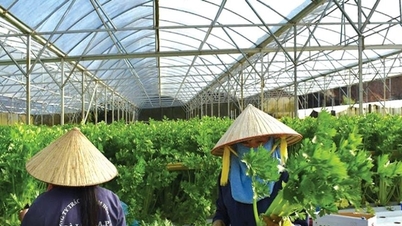





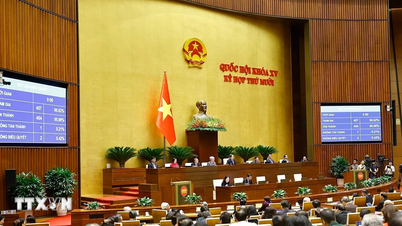
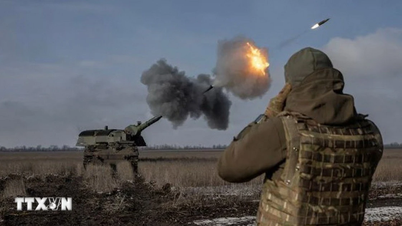
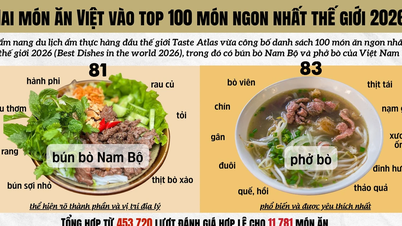
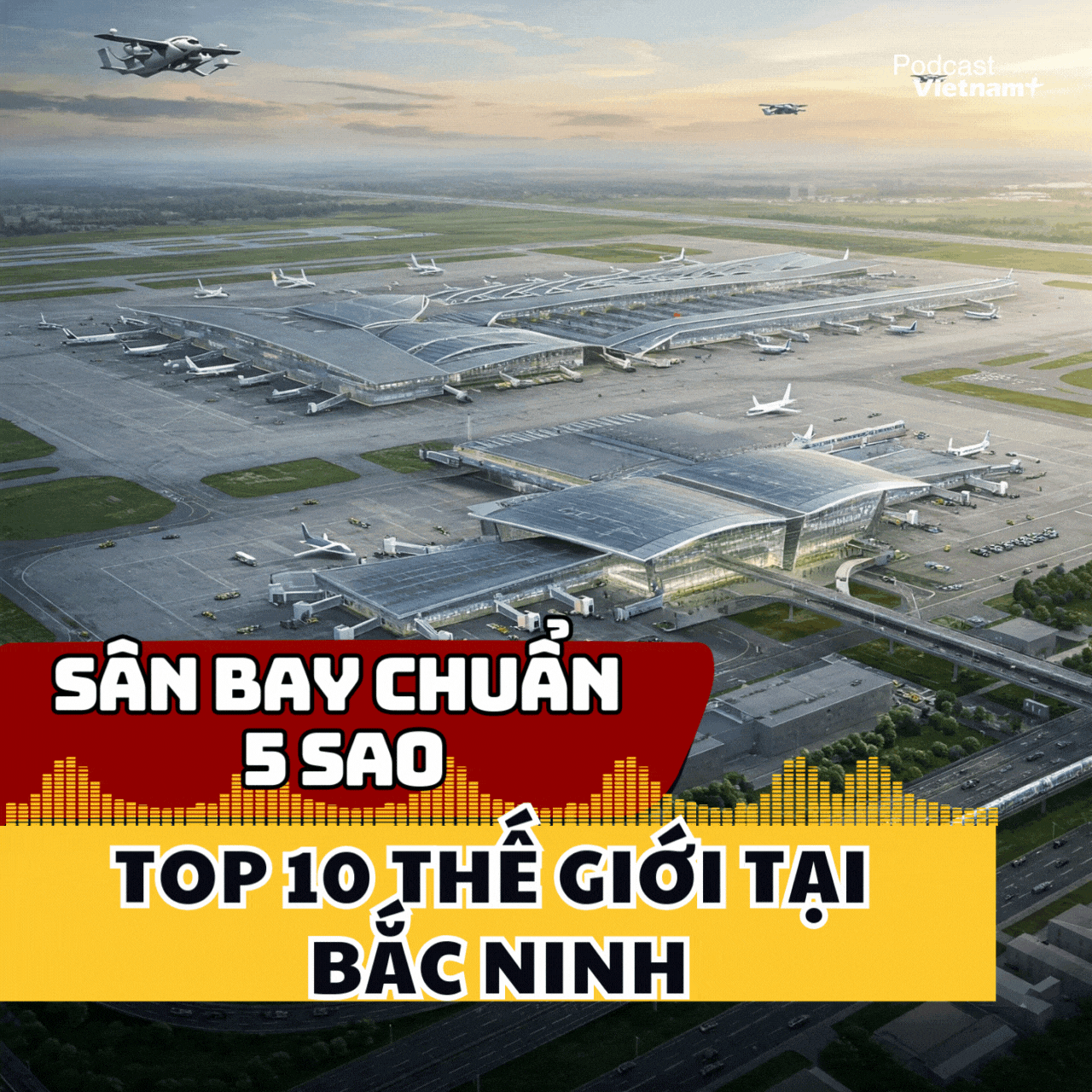
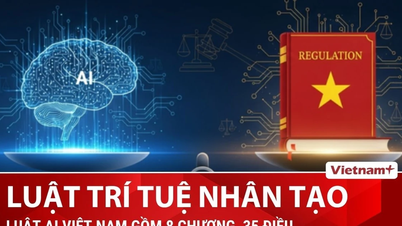
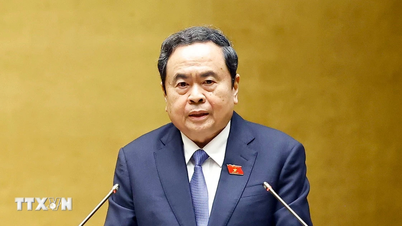















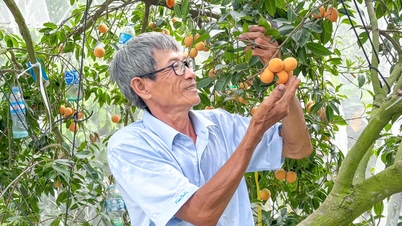

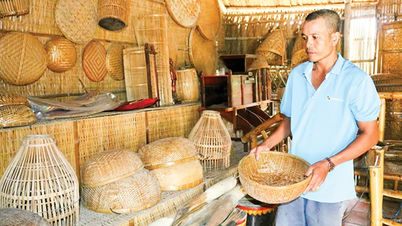

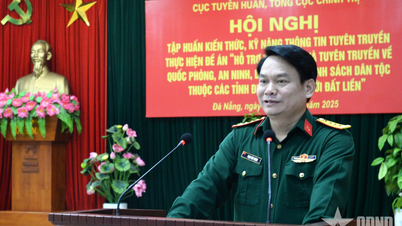
![[OFFICIAL] MISA GROUP ANNOUNCES ITS PIONEERING BRAND POSITIONING IN BUILDING AGENTIC AI FOR BUSINESSES, HOUSEHOLDS, AND THE GOVERNMENT](https://vphoto.vietnam.vn/thumb/402x226/vietnam/resource/IMAGE/2025/12/11/1765444754256_agentic-ai_postfb-scaled.png)







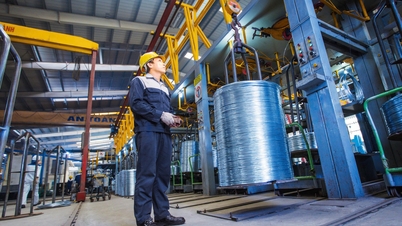











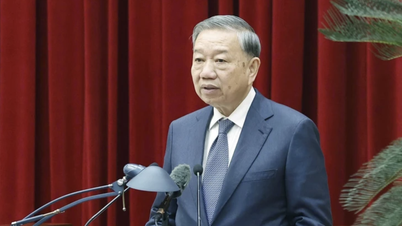
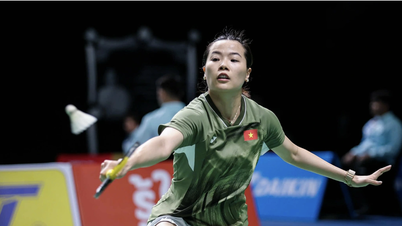
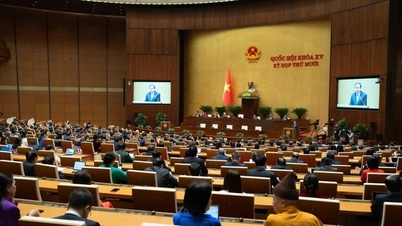

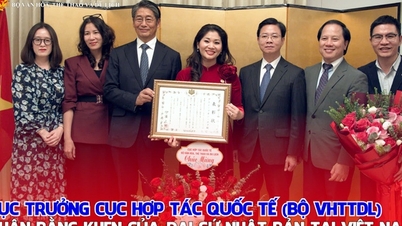
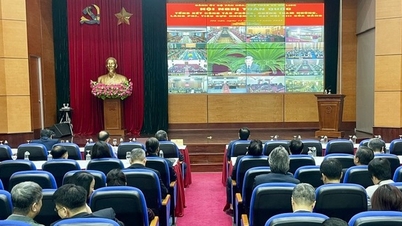
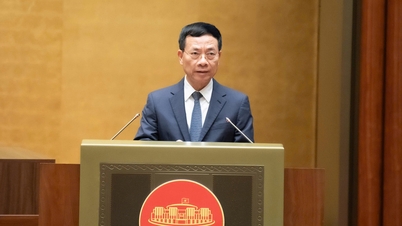

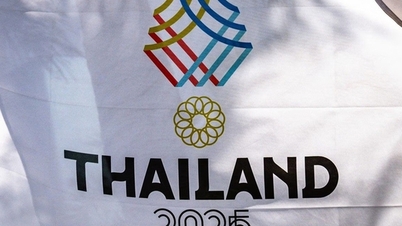
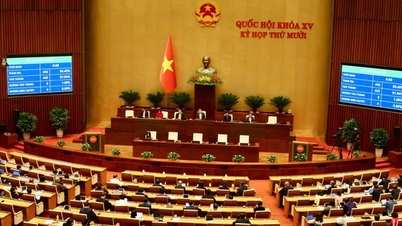

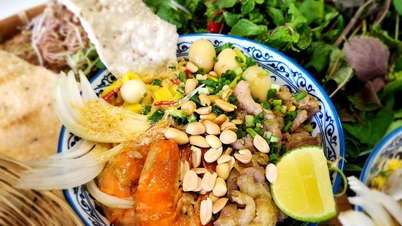

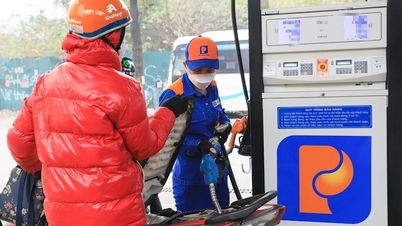
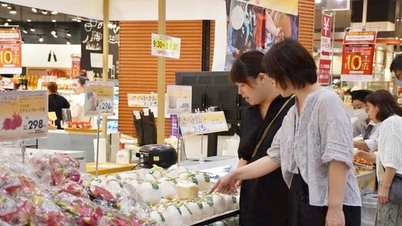

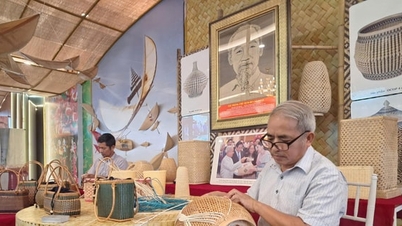
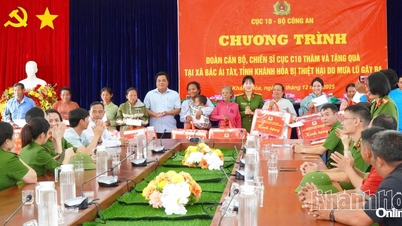

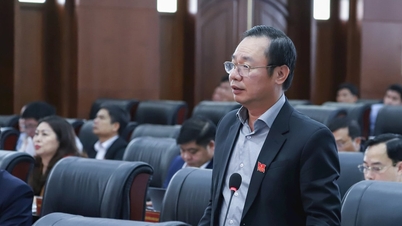














Comment (0)